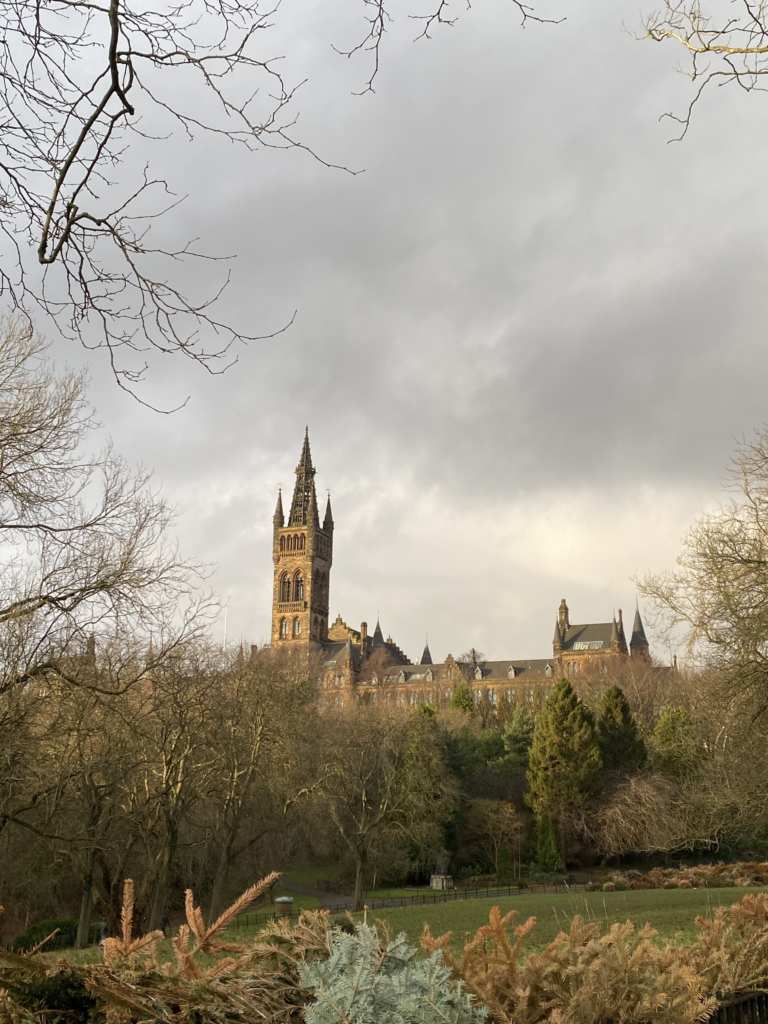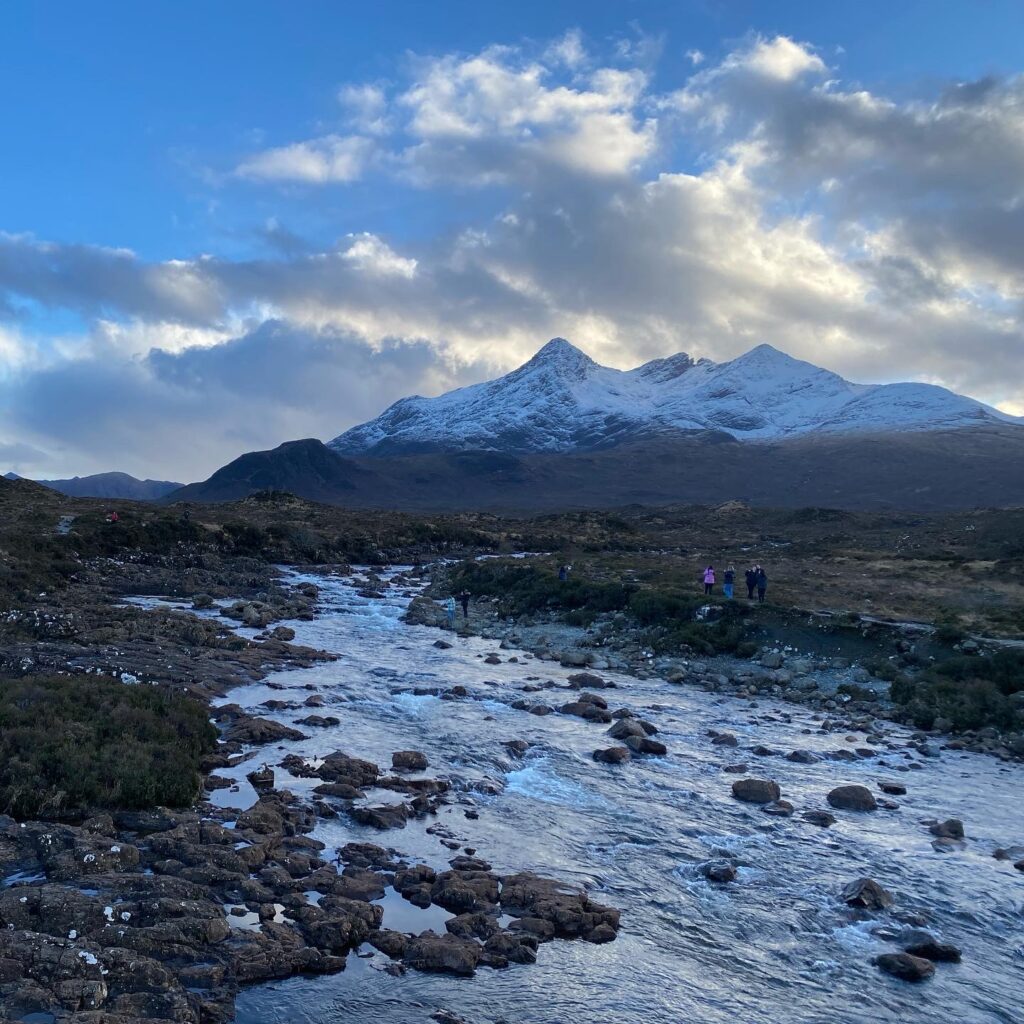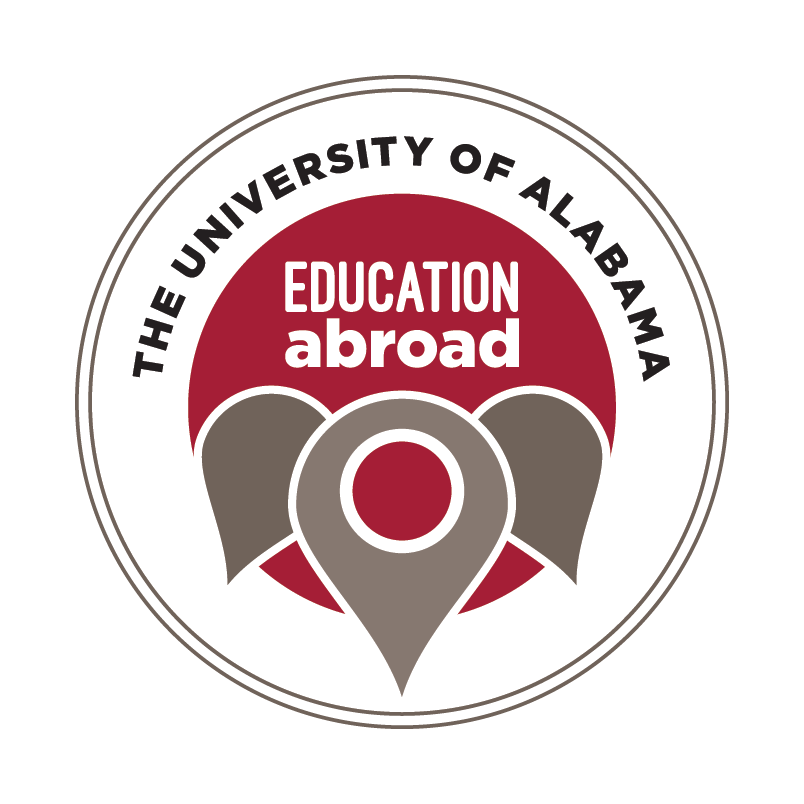
Picturing Scotland can conjure up images of rolling green golf courses, tartan kilts, bagpipes or haggis. Scotland is known for all these cultural hallmarks, as well as their unique dialect stemming from English, Scots, and Gaelic. These are the three most common languages spoken in Scotland. Since I arriving in January, I have come to learn and love new lingo.
Glasgow sits between the famous Loch Lomond and Edinburgh, about an hour away from each. This semester, I am an exchange student at the University of Glasgow. Established in 1451, it’s the fourth oldest university in the United Kingdom and is a Russell Group university (similar to the Ivy League). I’m halfway through my time here and have learned a great deal of new words and pronunciations.

For any American interested in visiting Scotland, here is a compilation of commonly used Scottish words that might help to make your transition a little easier. While there are many more, here are some of the most common words:
- Wee = small
- Aye = yes
- Class = great (“That’s class” translates to “That’s cool”).
- Mate = friend
- “Haud yer wheesht!” = Be quiet!
- Wheesht = “Shush!”
- Alba = Gaelic word for Scotland
- Caledonia = Latin word for Scotland (Caledonian can be used to describe something that is Scottish).
- “Getting your messages” = picking up groceries
- Peely-wally = This means pale white, but used as “You look sickly.”
- Lift = elevator
- Petrol = gas
- Bogging = disgusting
- Taps aff = hot weather (Example: “It’s taps aff out!” – Expression comes from “Tops off” for sunbathing).
- Chips = French fries
- Crisps = potato chips
- Bird = girl
- Birded up = got a girlfriend
- Lassie = girl
- Bonnie lass = pretty girl
- Hen = girl (Hen means “girl” in an endearing way. I have heard it typically used by older women in the way Southern grandmothers would say “sweetheart”).
- Bairn = child
- Did ye, aye? = This is a sarcastic way of asking, “Oh sure. Did you really?”
- Mingin = repulsive
- Craic/What’s the craic?= [pronounced “crack”] means either fun or gossip; Irish origin.
- Ah = I
- Ken = to know
- Ah dinnae ken = I don’t know
- Bruv = the Scottish equivalent of “Bro”
- Cannae = cannot
- Dug = Dog
- Edi = Edinburgh (Like how people shorten Tuscaloosa to T-Town)
- Int it no = isn’t it?
- Kelpie = Scottish legendary mythical creature that looks like a horse
- Knackered = tired
- Scran = food
- Barras = market (This comes from how people used to bring their wares in wheelbarrows to sell at the market).
- Sweets = candy
- Haggis, neeps n tatties = This is the traditional Burns night supper! Haggis is sheep organs cooked inside of a sheep stomach. Neeps is turnips. Tatties is potatoes. All this is typically served with gravy–and is delicious!
- Burns Night = January 25th is the celebration of Scots poet Robert Burns. There is a celebratory ceilidh.
- Ceilidh = Folk dance in a social hall; More common than you might think on a university campus. I see a lot of them as fundraisers put on by student clubs.
- Auld = old (“Auld Lang Syne” was written by Robert Burns in Scots).
- Tartan = the proper word for plaid. Each Scottish clan is identified by their own family tartan.
- Sweltering = very warm out
- Mòran taing = “Many thanks” in Gaelic
- Glaswegian = a person from Glasgow
I hope this list helps you understand the locals a little better if you come to Scotland. I cannot recommend Glasgow enough and hope you get the chance to see it!
